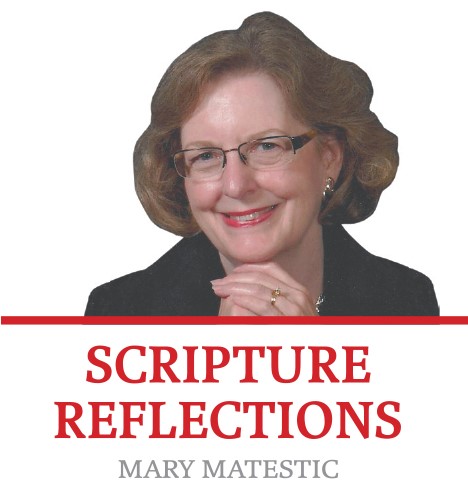May 7, 2023
Fifth Sunday of Easter
Acts of the Apostles 6:1-7
1 Peter 2:4-9
John 14:1-12
Reading John’s Gospel is like going deep-sea diving, plunging into the pristine waters where creation explodes with sea creatures and a sea bottom teeming with life. In John, we find not only a literal understanding of his stories but also symbols of light/darkness, belief/unbelief, life/death and blindness/sight. We find a high Christology framing the life of Jesus. He is imbued with divine autonomy. John’s poetry takes us to the threshold of mystery and makes promises that every generation will continue to plumb. Hope resides in those promises. In today’s Gospel, Jesus begins his final discourse (John 14-17) and helps his followers to find calm as the storm approaches.
Christ, the gentle rabbi, gathers his followers to soften the blow, you might say. The hour has come for him to be glorified through his ignominious Death and betrayal. Loyal to his followers, Jesus gathers them in the upper room and prepares them for the inevitable by first telling them, “Do not let your hearts be troubled.” There is a kind of maternal compassion in his gentle words. He announces that he is going away and that his departure is essential because he is going to prepare a place for them where they will one day be reunited with him. Their troubled hearts must take consolation in that their loss of him is temporary. If Jesus’ promise is going to bring them peace, that will depend upon them knowing who Jesus is.
Philip’s request articulates what everyone else is thinking: “Lord, show us the Father, and we will be satisfied.” The response that Jesus has for Philip is not exactly the one Philip wants to hear. Philip desires to see the Father in the flesh. It is here that Jesus must examine mystery and take his followers deep-sea diving into the mystery of the Father/Son relationship. How they receive the message that is coming will predicate their mission after Jesus’ Death and Resurrection. The followers of Jesus must know the Father and Jesus are interpenetrating realities. They can never be separated. As John Shea describes it, “They (the disciples) are connected to Jesus and through him to the Father to such a degree that they do the works of Jesus and the Father. Therefore, they cannot be separated, even by death. They are bound in a holy communion.”
If you and I can comprehend — even more, take into our very souls — these words of Jesus, then we will know that the works that Jesus does within the very person of his Father, we can do those as well. Not that we are demi-gods, but that we are committed followers of Jesus Christ, whose Holy Spirit dwells within us. Jesus is letting his followers, and indeed us, know that we are equipped to carry on the mission of Jesus beyond his life upon the earth.
The Acts of the Apostles is a testament to exactly what Jesus is talking about. The Holy Spirit emboldens the apostles, and despite captivity, jail time, silencing, threats and even martyrdom, the apostles never stop proclaiming the Word of God in season and out of season. In fact, the Church is slowly being birthed by the adding of numbers to the believers. The diaconate arises out of the needs of the community in the reading today. The naming of seven men to carry on service to the Greek widows marks a formal extension of the work of God to the wider community.
Then there is the remarkable reading from 1 Peter which highlights the bidding of our Baptism. We share in the priesthood with Jesus Christ. “But you are a chosen race, a royal priesthood, a holy nation, a people of his own so that you may announce the praises of him who called you out of darkness into his wonderful light.’” I remember the late Fr. Mel Michalski lighting up when he talked about the priesthood of the laity in our class on the Theology of the Church. He carefully walked us through the Vatican II document, Lumen Gentium. There was the ordained, ecclesial priesthood. But there was also the priesthood of the faithful.
Smiling, Fr. Mel would say that every baptized person is a priest in that they are able to enter fully into the sacrificial dynamic of the liturgy. We participate in the liturgy through our prayers, our songs, our ministries. We participate in our priestly role every time we pray with our children, unite our sufferings with Christ on the cross, step forward to give witness to our love for Christ Jesus, share our lives with the sorrowing, uphold the struggling and bring peace to the troubled. Without judgment and united with Jesus, we are interpenetrating our lives with Jesus and the Father by yielding to the power and gifts of the Holy Spirit. We are living the Resurrection.
So where is the Father? He is in you. He is me. Whether activated by our faith, or silenced by our doubt or indifference, he is there.

